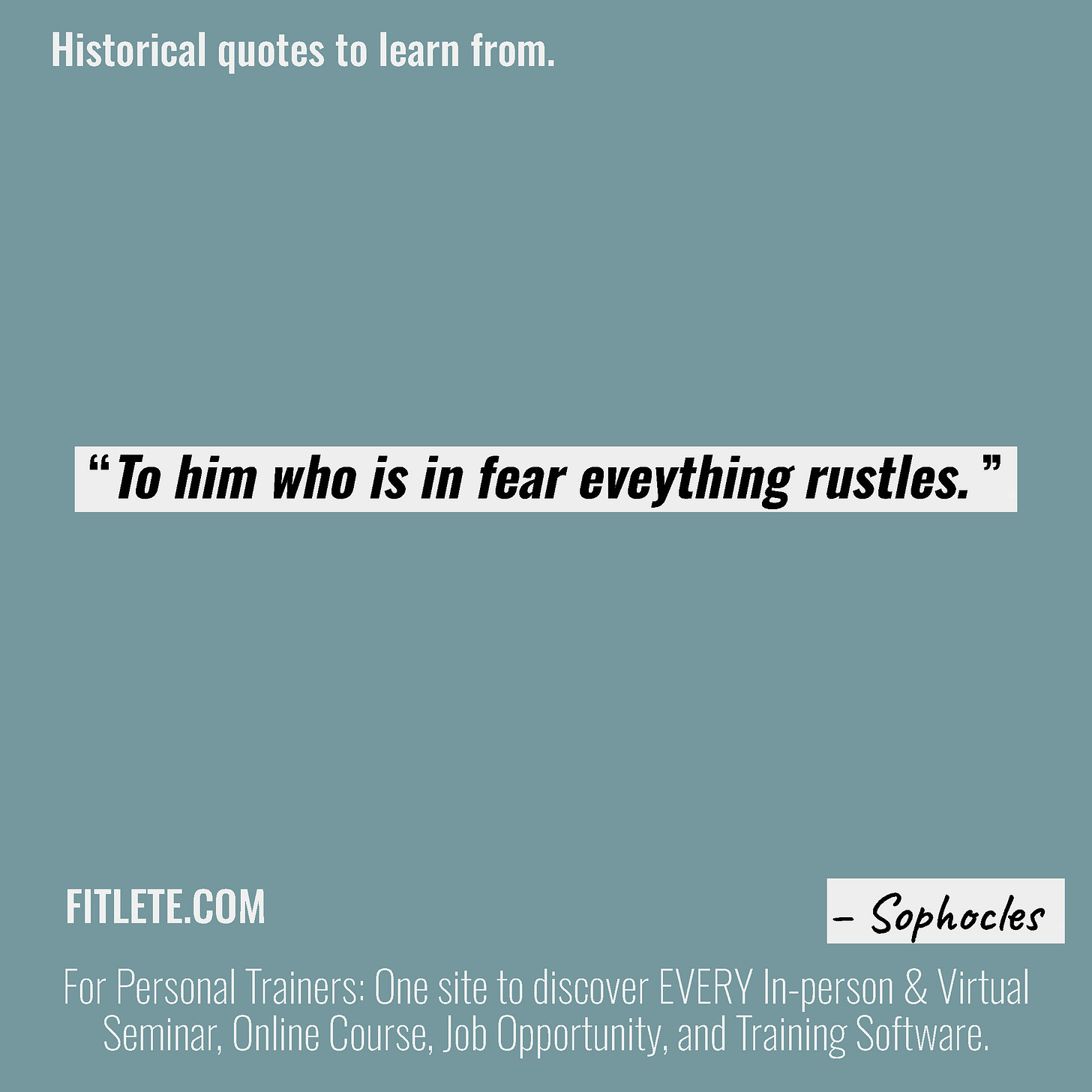June 9 | The Monday Report
Fear can distort perception. When I'm irrationally afraid, even harmless sounds or movements can seem threatening, making me overly cautious and anxious.
FITLETE Professional Update
The Resource Nexus
— Making some progress on the new layout and functionality for the business members.
I enjoy collaborating with companies that support trainers and have been eager to develop a method for them to oversee certain aspects of their accounts to differentiate themselves in The Nexus. Part of the build-out that I am structuring behind the scenes also allows for this, which is exciting.
I must improve my estimated timelines for completion. I often feel like I can finish everything instantly, but I am quickly reminded of reality when I assess the actual workflow.
Still, it leaves me excited to continue.
FITLETE Radio
Fantastic podcasts I heard last week:
In this talk, Dave Bright, a coach and Senior Lecturer at Chichester University, and Dr. Oliver Runswick, a Senior Lecturer at King's College London, explore cognitive load and skill acquisition in martial arts. They emphasize the 'Challenge Point' concept and how task difficulty enhances motivation and learning. They also discuss psychological aspects of coaching in high-stress environments, including challenges in sports like UFC and the importance of trust in coach-student relationships.
Founders— #390 Rare Steve Jobs Interview
In a rare interview, a young Steve Jobs explores the transformative power of personal computers. He argues that the best products arise from slightly insane creators. Jobs warns against excessive management layers, values hiring troublemakers, and embraces unpredictability in tech. He reflects on influences like Edwin Land and advocates for simplifying software to enhance user experiences. Ultimately, his insights inspire innovators to challenge norms for groundbreaking ideas.
Hidden Brain— How Much Do We Really Know?
Phil Fernbach, a cognitive scientist at the Leeds School of Business, explores the 'illusion of knowledge'—how we overestimate our understanding of simple things, such as toilet mechanisms. He highlights the dangers of overconfidence in fields like science and finance and underscores the importance of self-reflection regarding our assumptions. Fernbach also advocates for curiosity and compassion in navigating political views and encouraging open-mindedness.
Freakonomics Radio— How to Succeed at Failing: A Four-Part Series
Amy Edmondson, a Harvard Business School professor, and David Riedman, founder of the K-12 School Shooting Database, examine events leading to disasters. They stress accountability after wildfires and school shootings, advocating for improved emergency responses. The conversation also emphasizes embracing failure for growth, highlighting its role in personal and organizational development. They urge a cultural shift to support open discussions about failure to prevent future tragedies.
Join organizational psychologist Amy Edmondson and patient safety advocate Carole Hemmelgarn as they discuss the serious consequences of medical errors and the need for transparency in healthcare. MIT's Robert Langer shares insights from biomedical research, showing how failures can lead to breakthroughs like COVID vaccine development. They emphasize viewing failures as learning opportunities and advocate for resilience and accountability in medical practices.
Travis Thul, Vice President at Minnesota State University and ramen innovator, discusses grit in overcoming failure. Jill Hoffman, CEO of Path 2 Flight, shares insights from her family's aviation legacy and embracing setbacks. John Boykin, a website designer who aimed to revolutionize paint cans, reflects on how failure shaped his career. Artist Joseph O’Connell illustrates how public art projects inspire resilience and new beginnings, emphasizing persistence and the right mindset for success.
Gary Klein, a cognitive psychologist, and Theresa MacPhail, a medical anthropologist, discuss the lessons failure teaches us through the lens of tuberculosis, an underestimated contemporary challenge. They highlight the value of pre-mortems in decision-making, promoting openness to failure in organizations. Additionally, they illustrate resilience in entrepreneurship by showcasing how the Museum of Failure enables learning from setbacks.
Here’s a link to download Snipd, the podcast app I use to make a “notebook” of A.I. transcripts, bookmarks within episodes, and take notes on each podcast I hear! They have a free app you can use or, with this link, you get 1 month of their Premium version for free: 1 Free Month Of Premium Snipd.
Personal Update
— I'm enjoying this limited, purposefully inconvenient access to Instagram that I’ve set up for myself; it's only computer access for casual use, sharing, and automated scheduling posts out with a free Make.com account, Google Drive, and a Google Calendar. Sometimes, self-imposed limitations or restrictions can be beneficial for both productivity and creativity. I don’t run either side of my business through Instagram, but I enjoy having an account and sharing. So I set up some conditions for myself. How do I not spend money from my budget to use it better, automate it a little, schedule a lot, and have more freedom from needing it on my phone? Now, I have some posts scheduled to publish through 2027! I can focus on other things.





